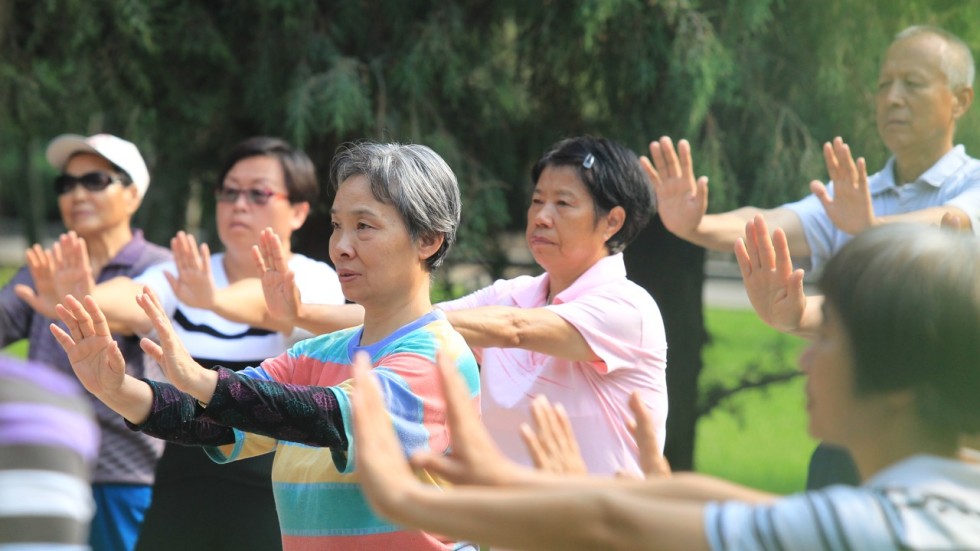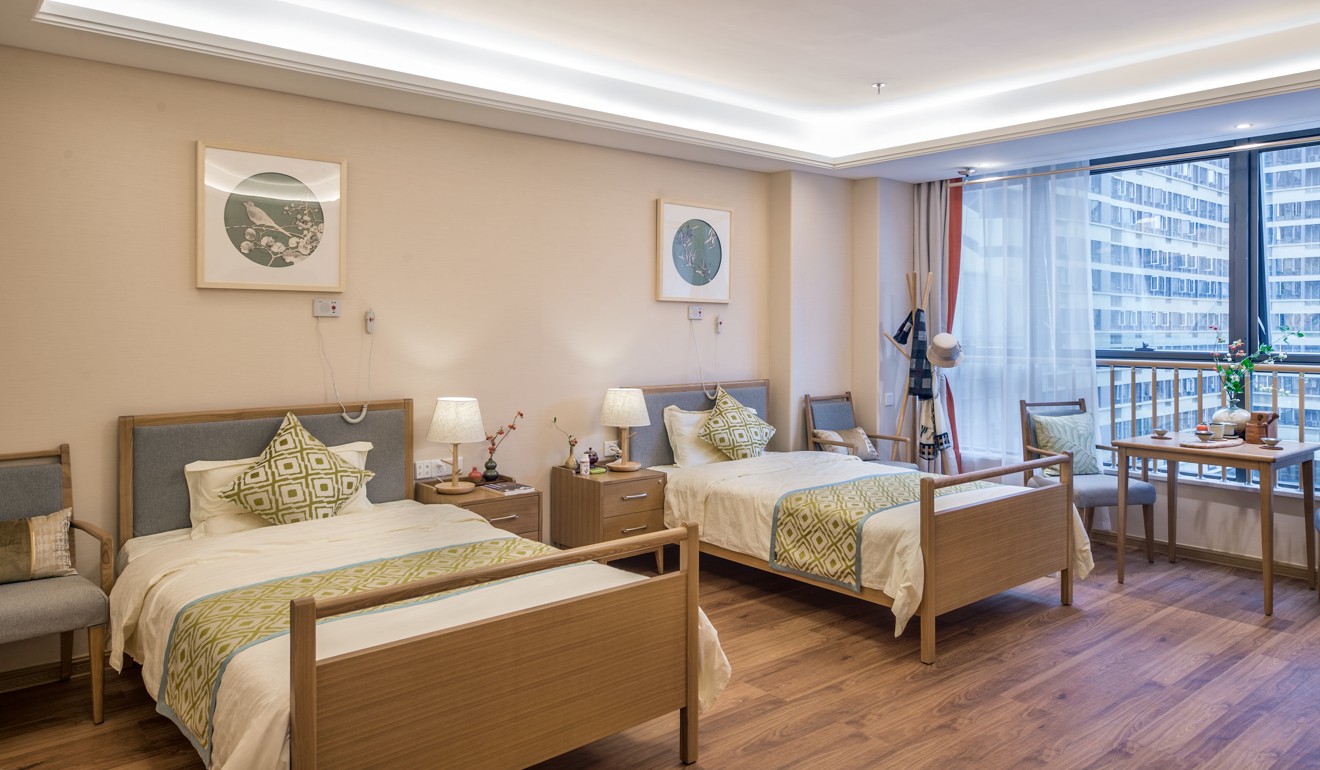In China, developers experiment with retirement homes as families rethink cultural expectations about caregiving
Developers are moving cautiously because of the deeply ingrained Chinese expectations that children must care for their elderly parents
Longfor this month opened its first retirement home with 151 beds in Chongqing
COMMENTS:

Pearl Liu
But, like other developers, it is moving cautiously because of the deeply ingrained Chinese expectation that children must care for their elderly parents. It’s known as yang er fang lao – “raise children to support your old age.”
That expectation, however, may slowly be changing.
Some parents now in their 40s or 50s with only one child due to China’s only recently loosened restriction of one child per family say they might choose to live in a retirement community, both for friendship and fun but also to avoid burdening their child.
That explains why the Hong-Kong listed Longfor – one of the top 10 developers in China by sales – is testing the waters with its first retirement home in Chongqing, an important southwest municipality where the company got its start 25 years ago.This month, it opened a seven-floor retirement home with 72 rooms and 151 beds, and decorated with Chinese paintings.
Chun Shan Wan Shu – implying “long life” – is designed to meet the special needs of older residents.
Wash basins, for example, are set lower for those in wheelchairs. Lifts – including an oversized one in the event of a medical emergency – ensure quick access to the dining room, haircut salon and karaoke room. A physiotherapy room has toys to boost memory and hand coordination. Doctors are available – both practising western and traditional Chinese medicine.

Already, 12 people – all older than 80 – have moved in.
“We are exploring the new business,” said CEO Shao Mingxiao of Longfor.
He predicts that in five to 10 years, Chinese in their 60s with strong savings will be more open to retirement communities.
“That will signal the golden era, where the business will blossom,” he said.
Longfor is looking at building retirement homes in Chengdu – home of the pandas – Beijing and Shanghai. But, underscoring how small the retirement-home division is in Longfor’s overall business, it is calling it dianxin – dessert.
Longfor isn’t alone in checking out the potential huge demand for retirement communities one day in China.
The Chinese dream is rooted in the very American notion of owning a roof over every head
China Vanke, China’s second-largest developer, began exploring the elderly care business in 2009.
“We are still exploring it, and frankly speaking, we have not found out the most suitable operation model yet,” Yu Liang, chairman of Vanke, said at a board meeting in June.
China Poly Group, Sino-Ocean Group and Greentown are also experimenting.
“There is a lot of opportunity, but currently we see most developers are at a stage of exploration,” said Yan Yuejin, analyst with E-House China R&D Institute.
Yan points out retirement homes are more complicated than traditional residential housing because older people have more need of medical care. Costs for all the special needs can be high, underscoring why developers are looking at potential residents who are financially secure.
“In the long-term, it is a good way for developers to diversify their business,” Yan said.
The numbers explain Yan’s assessment.
China’s property barons fulfilled ordinary families’ dreams – and became fabulously wealthy
China has the largest number of citizens aged 60 or older: 241 million citizens, 17 per cent of its population as of the end of last year. By 2050, that number will jump to peak at 487 million, or 35 per cent of the total population.
Wang Rui, a 54-year-old middle schoolteacher in Beijing, is an example of a Chinese person with mixed feelings about the old culture of yang er fang lao. Her mother is 76 and has been paralysed for nearly three years. Wang and her younger sister share caring for their mother. They pay 5,000 yuan (US$720) a month for extra help when they are at work.
“I would feel that I am abandoning my parents if I put them in an elderly nursing home,” Wang said.
But she wants a different fate for her own daughter.
“I’ve been there, so that I know how frustrating it can be,” Wang said. “And there is no need to mention that my daughter is the only child and she would have no one there to help her [care for her own parents].”
Wang said she is open to one day moving into retirement home where she could enjoy “chatting and being with people my age.”
That kind of sentiment is what developers like Longfor need.
www.fotavgeia.blogspot.com
Developers are moving cautiously because of the deeply ingrained Chinese expectations that children must care for their elderly parents
Longfor this month opened its first retirement home with 151 beds in Chongqing
COMMENTS:

Pearl Liu
But, like other developers, it is moving cautiously because of the deeply ingrained Chinese expectation that children must care for their elderly parents. It’s known as yang er fang lao – “raise children to support your old age.”
That expectation, however, may slowly be changing.
Some parents now in their 40s or 50s with only one child due to China’s only recently loosened restriction of one child per family say they might choose to live in a retirement community, both for friendship and fun but also to avoid burdening their child.
That explains why the Hong-Kong listed Longfor – one of the top 10 developers in China by sales – is testing the waters with its first retirement home in Chongqing, an important southwest municipality where the company got its start 25 years ago.This month, it opened a seven-floor retirement home with 72 rooms and 151 beds, and decorated with Chinese paintings.
Chun Shan Wan Shu – implying “long life” – is designed to meet the special needs of older residents.
Wash basins, for example, are set lower for those in wheelchairs. Lifts – including an oversized one in the event of a medical emergency – ensure quick access to the dining room, haircut salon and karaoke room. A physiotherapy room has toys to boost memory and hand coordination. Doctors are available – both practising western and traditional Chinese medicine.

Already, 12 people – all older than 80 – have moved in.
“We are exploring the new business,” said CEO Shao Mingxiao of Longfor.
He predicts that in five to 10 years, Chinese in their 60s with strong savings will be more open to retirement communities.
“That will signal the golden era, where the business will blossom,” he said.
Longfor is looking at building retirement homes in Chengdu – home of the pandas – Beijing and Shanghai. But, underscoring how small the retirement-home division is in Longfor’s overall business, it is calling it dianxin – dessert.
Longfor isn’t alone in checking out the potential huge demand for retirement communities one day in China.
The Chinese dream is rooted in the very American notion of owning a roof over every head
China Vanke, China’s second-largest developer, began exploring the elderly care business in 2009.
“We are still exploring it, and frankly speaking, we have not found out the most suitable operation model yet,” Yu Liang, chairman of Vanke, said at a board meeting in June.
China Poly Group, Sino-Ocean Group and Greentown are also experimenting.
“There is a lot of opportunity, but currently we see most developers are at a stage of exploration,” said Yan Yuejin, analyst with E-House China R&D Institute.
Yan points out retirement homes are more complicated than traditional residential housing because older people have more need of medical care. Costs for all the special needs can be high, underscoring why developers are looking at potential residents who are financially secure.
“In the long-term, it is a good way for developers to diversify their business,” Yan said.
The numbers explain Yan’s assessment.
China’s property barons fulfilled ordinary families’ dreams – and became fabulously wealthy
China has the largest number of citizens aged 60 or older: 241 million citizens, 17 per cent of its population as of the end of last year. By 2050, that number will jump to peak at 487 million, or 35 per cent of the total population.
Wang Rui, a 54-year-old middle schoolteacher in Beijing, is an example of a Chinese person with mixed feelings about the old culture of yang er fang lao. Her mother is 76 and has been paralysed for nearly three years. Wang and her younger sister share caring for their mother. They pay 5,000 yuan (US$720) a month for extra help when they are at work.
“I would feel that I am abandoning my parents if I put them in an elderly nursing home,” Wang said.
But she wants a different fate for her own daughter.
“I’ve been there, so that I know how frustrating it can be,” Wang said. “And there is no need to mention that my daughter is the only child and she would have no one there to help her [care for her own parents].”
Wang said she is open to one day moving into retirement home where she could enjoy “chatting and being with people my age.”
That kind of sentiment is what developers like Longfor need.
www.fotavgeia.blogspot.com

Δεν υπάρχουν σχόλια:
Δημοσίευση σχολίου